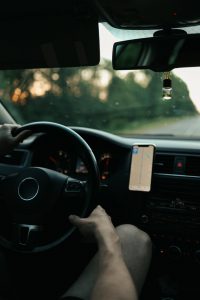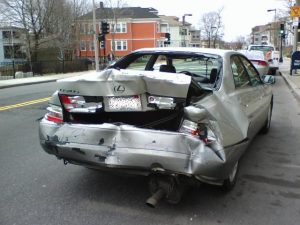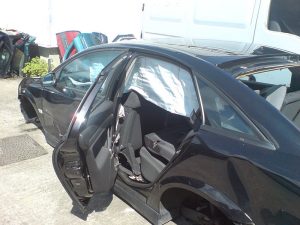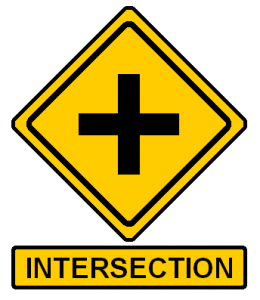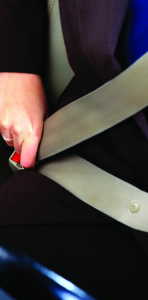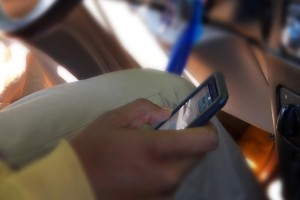Every day, about seven teens are killed and hundreds suffer serious injuries nationwide due to car accidents, according to the CDC. While teens see getting a driver’s license as a rite of passage and a way to get freedom, getting behind the wheel is often the most dangerous thing drivers do everyday, and these motorists face additional risks when compared with other users of the road.
Articles Posted in Young Drivers
Keeping Dania Beach Teen Drivers Safer
Teen drivers in Dania Beach are excited to hit the road and experience freedom, but these motorists face some additional challenges when it comes to safety. Since they may still be perfecting their driving skills, young drivers can make mistakes which lead to crashes. Younger drivers are also statistically more likely to take risks when compared with older motorists, and risk-taking can also lead to collisions.
Five Ways To Help Your Teen Drive Safely in South Florida
Young drivers are often safe drivers. Their training is still fresh in their minds and they are still learning so most drivers who are younger are taking driving seriously. That said, they also have less experience than more seasoned motorists and younger drivers may face more peer pressure from their similarly aged passengers. There are five ways you can help your teen avoid car accidents and traffic collisions in Hollywood and in surrounding areas:
Talk to Your Teens About Driving Safety Rules Today
Many teenagers right now are feeling a little bit restless, especially since the COVID-19 pandemic has cancelled many activities, classes, and even get-togethers. As a result, teenagers with drivers’ licenses may be driving more as a way to have something to do, and this extra time on the road can pose additional hazards.
If your children are bored and driving over longer distances, they may be taking more risks and simply being on the road for a longer can mean a higher risk of car accidents and injuries. For these reasons, right now is an excellent time to talk to your children about driving safely. You may want to talk about:
Make a Safe Driving Plan for Your Teens
Scientists know that brain development in teenagers is very different than brain structure in adults. Teenagers still have brains that are developing, which can make it harder for them to evaluate the long-term consequences of their actions. It is one reason why teens are not allowed to drink until they are older, since they need the extra time to grow and accumulate experience to ensure they can handle alcohol safely.
Teen drivers can fall prey to peer pressure or inexperience, which can contribute to car accidents. If you have a teen driver in Homestead or anywhere in South Florida, you may want to talk to them about safe driving. A safe driving plan can include:
Six Conversations to Have With Your Kids Before They’re Old Enough to Drive in Hollywood
Long before your children are old enough to drive in Hollywood, they will be in cars, being ferried to and from school and activities. They are still at risk of car accidents. Even more importantly, children are watching everything—including the driving habits of the adults who drive them around. They are forming their ideas of what driving should look like.
For these reasons, it’s imperative that you talk to your children about road safety, even if their sixteenth birthday is still a long way off. Some of the topics you should cover include:
Does Your Teen Need More Driving Instruction?
Getting a driver’s license is an exciting moment for many teens, but most teens get their licenses after only a few hours of instruction. Even new drivers who do attend driver education classes often get only limited one on one time with a professional instructor. In group classes, teens may only get limited time behind the wheel of a car for solid practice.
There are many signs that your teen may need more driving instruction. If your teen is not confident behind the wheel of a car, if their insurance rates are high, or if they have been in fender benders or close calls, these are all signs that additional training and education may be beneficial.
Talking to Your Teen About Their First Car Accident
When your teen first gets their license, they’re usually thinking about freedom and about all the great things they will get to experience. Road trips. Visits to friends. Teens rarely think about their first accident, but in reality young drivers do find themselves in serious collisions in Hollywood and Florida. And if your teen drives long enough, statistically they will be in a few collisions in their lifetime.
As a parent, it’s a terrifying thought. But it’s also an opportunity to prepare your teens and to have an honest discussion about the dangers of driving. Even if you hate the thought of your child ever being in a collision in Hollywood or anywhere else, having this tough discussion is crucial. It can help you impress upon your young driver how to avoid crashes—and can help them understand what they need to do to protect themselves if they ever are in a crash.
Frequent Mistakes Teen Drivers Make After a Car Accident
Most drivers find themselves in at least one accident, and new drivers in their teens are especially likely to be in an accident. They simply don’t have extensive driving experience and they may make mistakes due to their new driver status. Unfortunately, teens can also panic and makes serious mistakes after a car accident.
Some of the more common mistakes that minors may make after an accident include:
Risk-Taking, Teenagers, and Car Accidents
Young drivers have some of the highest insurance rates around, and a big part of this has to do with the fact that statistically speaking, young drivers are more likely to take part in risk taking activities behind the wheel. According to research, this is especially true of young male drivers who are in the car with their peers.
The idea that your child may be hood surfing, speeding, driving stunts, drag racing, or taking part in any dangerous activities can be hard to believe. However, the parents of teenagers who are seriously injured or even killed by taking part in these activities often tell authorities that they had no idea their child was involved in these types of situations. Children may be injured the first time they try an unsafe driving maneuver. In some cases, too, children go well out of their way to keep their more risk taking activities a secret from their parents.
 Florida Car Accident Lawyer Blog
Florida Car Accident Lawyer Blog



